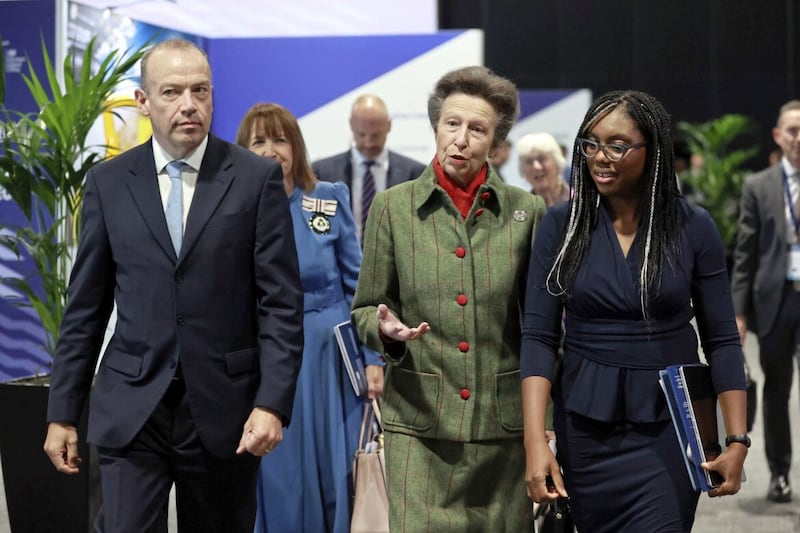TIMES are tough for many of Northern Ireland’s businesses right now. Surging energy prices and rising inflation are simultaneously adding to cost pressures and undermining customer spending power.
For some sectors, this growing cost-of-living crisis – exacerbated further by the horrid events unfolding in Ukraine – comes even as many firms are still battling to complete their post-Covid recovery.
It’s a perfect storm of coalescing crises which threatens to halt the economic rebound and stymie future ambitions for growth and investment.
That was why the eyes of business were firmly on the UK’s Chancellor as he unveiled his Spring Statement. Firms were seeking reassurance that UK Government understood the challenges facing them today, as well as decisive action needed to build prosperity tomorrow. Interventions that both shield the economy from further shocks and lay the foundations for growth in the years ahead.
Did the Chancellor succeed? Well, sort of.
Let’s start with the positives. It was heartening to see the Chancellor recognise the need to boost business investment, given the critical role which private sector spending plays in economic growth.
The CBI has long argued that measures to revitalise the UK’s long-stagnant productivity should include action on capital allowances, R&D reforms and revisions to the apprenticeship levy. Here in Northern Ireland, firms are currently unable to access much of their apprenticeship levy contributions as the Executive uses money returned by the UK Treasury to top up other spending areas, including health and education. Furthermore, a permanent replacement for the successful Super Deduction can catalyse investment in the years ahead.
These are strategies with the power to increase competitiveness, and the Chancellor’s pledge to deliver action on these fronts later this year is welcome. CBI members across the UK – including, of course, here in Northern Ireland – stand ready to work with Government to shape these plans and ensure they provide the much-needed fillip the economy sorely needs. After all, the fundamentals haven’t changed; increasing productivity growth is the only sustainable route to rising real wages amid the cost-of-living crisis.
Yet for firms facing into headwinds right now, October’s Budget feels a long way off. Some businesses, which have been struggling to stay afloat after two years of previously unimaginable challenges, simply cannot wait that long.
Firms know there is no magic wand. There is little manoeuvrability in public finances right now, and it is not down to Government or indeed an Executive to solve every challenge. However, with confidence dipping and growth projections faltering, we are in dire need of fresh economic impetus – and the only enduring response to current issues around inflation, energy prices and the cost-of-living is a relentless campaign for growth.
Above all, increasing productivity growth is the only sustainable route to higher living standards. That means acting now. And we have some ideas on what that should look like.
Immediate investment in hydrogen and wind can not only secure our energy supply – essential against the backdrop of conflict in Ukraine - it will also deliver new jobs and opportunities.
Right now, there is an urgent need to deliver an electric vehicle infrastructure charging strategy in Northern Ireland. Powering up our plans in this area would attract investment, give drivers the confidence to overcome range anxiety while helping the region meet its own carbon targets.
And there remains a powerful argument for additional measures to support businesses through an energy crisis which so far shows little sign of abating.
There has rightly been plenty of focus on how energy bills are impacting consumers, but businesses too are being forced to cope with huge hikes. Smaller firms in particular, and also vulnerable customers, are being hit hardest. I have heard of some firms which have seen prices go up fivefold overnight. That’s a lot to budget for, especially for energy-intensive industries.
During the pandemic, the UK Chancellor went to great lengths to support cashflow in the short-term with loans and delayed payments. In that context, the Spring Statement was a missed opportunity for the Government.
While bold approaches promised for the autumn offer encouragement, firms have been left wanting in the short-term – with promises of ‘jam tomorrow’ leaving businesses hungry. Getting growth going again – right across the United Kingdom – remains urgent.
:: Angela McGowan is director of CBI Northern Ireland









